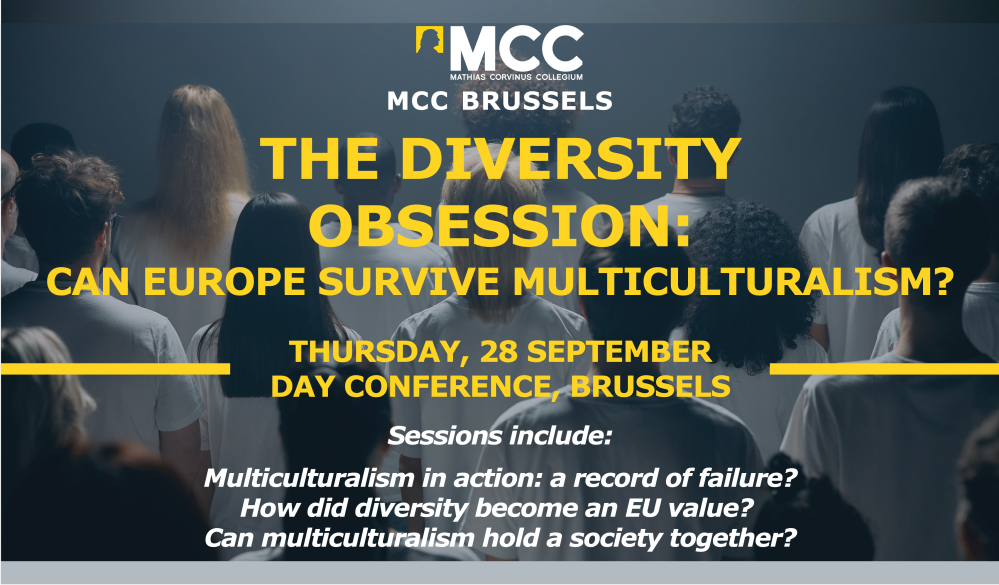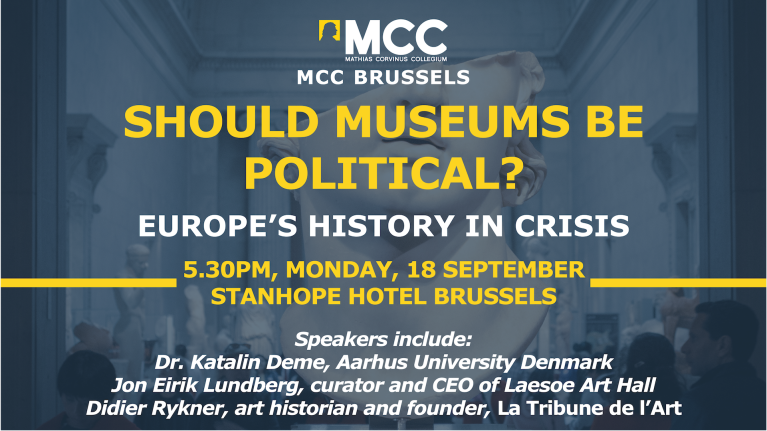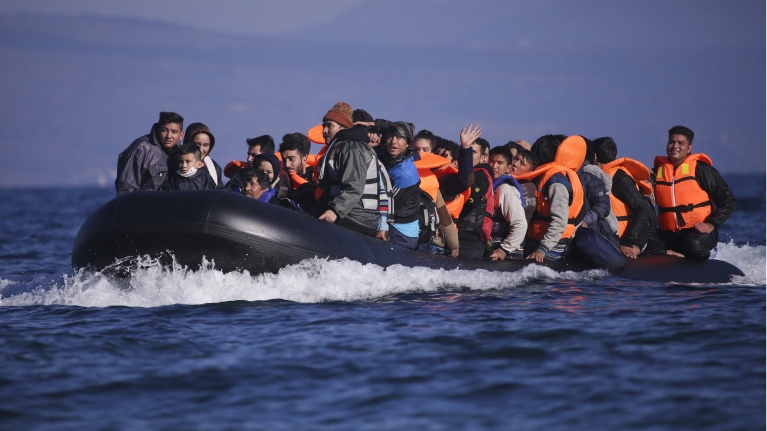REGISTER HERE
The Diversity Obsession: Can Europe survive multiculturalism?
- A day long conference from MCC Brussels
- ACE Events, Av. d'Auderghem 22, 1040 Bruxelles, Belgium (nearest metro: Schuman)
- 10.00 - 17.30, 28th September, 2023
The diversity agenda is the one thing that Europe’s elites put beyond debate. This conference is our chance to interrogate it.
We will discuss:
-
Is the ideology of diversity designed to pathologise national identity?
-
Do the diversity policies of Europe’s elites fragment European societies?
- How should Europeans respond to the multicultural agenda?
Speakers include:
Dr Göran Adamson, Lars Åberg, Professor Paul Cliteur, Dr Alka Sehgal Cuthbert, Professor Bill Durodié, Dr Rakib Ehsan, Professor Frank Furedi, José Antonio Fúster, Dr Boris Havel, Dyab Abou Jahjah, Dr Arta Moeini, Professor Werner J. Patzelt
Sessions include:
- Multiculturalism in action: a record of failure?
- How did diversity become an EU value?
- Can multiculturalism hold a society together?
EVENT PROGRAMME
10.00 Registration
10.30 - 12.00 Panel I: Multiculturalism in action: a list of failures?
- Lars Åberg, author and reporter; author City of The Future, The Country Where Anything Might Happen, All Inclusive
- Dr Rakib Ehsan, author, Beyond Grievance: what the Left gets wrong about ethnic minorities
- José Antonio Fúster, Deputy of the Vox Parliamentary Group in Madrid
- Professor Werner J Patzelt, research director, MCC Brussels
12.00 – 13.00 Lunch
13.00 – 14.15 Panel II: United in diversity? Can multiculturalism hold a society together?
- Dr Göran Adamson, associate professor in Sociology; author, Populist Parties and the Failure of the Elites, and The Trojan Horse: A Leftist Critique of Multiculturalism in the West
- Professor Bill Durodié, visiting professor, MCC Brussels
- Professor Paul Cliteur, professor of jurisprudence, Leiden University; politician; philosopher; writer and columnist
- Dr Arta Moeini, founding editor, Agon Magazine; research director, Institute for Peace and Diplomacy
14.15 – 14.45 Coffee
14.45 – 16.00 Panel III: How did diversity become an EU value?
- Dr Natalia Borza, research fellow, MCC Brussels
- Alka Sehgal Cuthbert, founder and director, Don’t Divide Us
- Dr Boris Havel, associate professor, Middle East studies, University of Zagreb, Croatia
16.00 – 16.30 Coffee
16.30 – 17.30 Beyond Multiculturalism: Dyab Abou Jahjah in Conversation with Frank Furedi
- Professor Frank Furedi, executive director, MCC Brussels
- Dyab Abou Jahjah, Arab political activist and writer; founder, Arab European League; author, Identities on the Move
17.30 Wine reception
REGISTER HERE
The Diversity Obsession: Can Europe Survive Multiculturalism?
Multiculturalism is perhaps the unofficial ideology of the European Union. While it has different meanings, most believe that the core of multiculturalism is the celebration of cultural, ethnic and religious diversity. Indeed, right across the continent, politicians appeal to the importance of diversity as a value that Europeans need to celebrate.
Celebrating diversity can be seen as a positive ideal. But, as recent riots in France seem to have illustrated, multiculturalism can often be in tension with the idea of a broader common culture within a country. Ever since the genesis of multicultural policies, people have asked whether a nation or even a continent can survive without some sort of common culture into which new arrivals can be integrated. Such questions seem especially unavoidable today.
Central to the debate is the role of diversity. As a fact of life, diversity is unavoidable, unobjectionable and often enriching. But today’s elites go further: diversity is a special value, meaning the celebration of differences. But many citizens feel that what unites us – in national cultures or even as Europeans – is equally or even more important. Is there room for the importance of national attachment and a common culture within the debates about multiculturalism? What does it even mean to ‘celebrate diversity’? Are those who refuse to celebrate diversity simply bigots, or do they have legitimate concerns about the tendency of multicultural policies to divide society rather than unite it?
Multiculturalism also throws up difficult questions for its proponents. Many minority groups have unashamedly conservative cultural values, which often puts them at odds with the progressive policies of EU elites around issues of sex and gender. Does this mean that some diversity is good, and other kinds bad? Similarly, many of those who are descendants of immigrants have hard-line positions on immigration – are they the 'wrong' kinds of immigrants?
Likewise, critics of multiculturalism have to face difficult questions. Foremost among them is the line between attachment to home and xenophobia. Is criticism of multiculturalism the acceptable face of racism? Further, when critics attack the emptiness of the ideology of diversity, which lacks any unifying force, do they have any alternative? Can they define what it means to be French, Spanish, German, etc., or even what it means to be European?
Amid these difficult issues, this conference will invite European commentators, politicians and citizens to explore the legacy of multiculturalism in Europe. MCC Brussels welcomes participants from across the political divide, and hopes to start an open discussion about Europe’s future.


